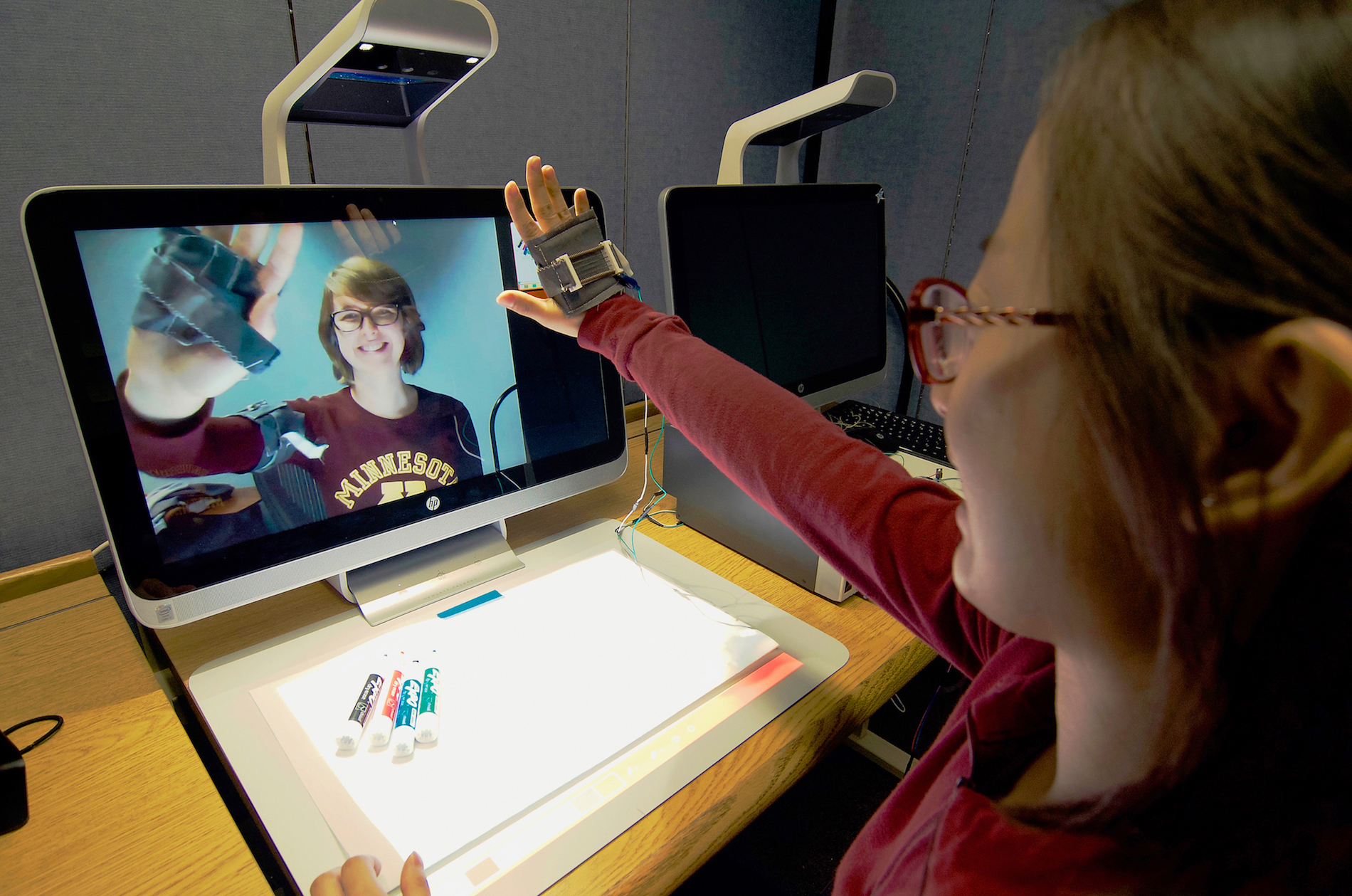SqueezeBands: Hugging Through the Screen
By Lana Yarosh on

When I Skype with my family, I really wish that I could reach through the screen to give them a hug! Instead, we sometimes have to pretend—we lean forward “hugging” the monitor or bring our hands towards the camera to do a virtual “high five.” What if you could actually feel some of that touch instead of just having to imagine it?